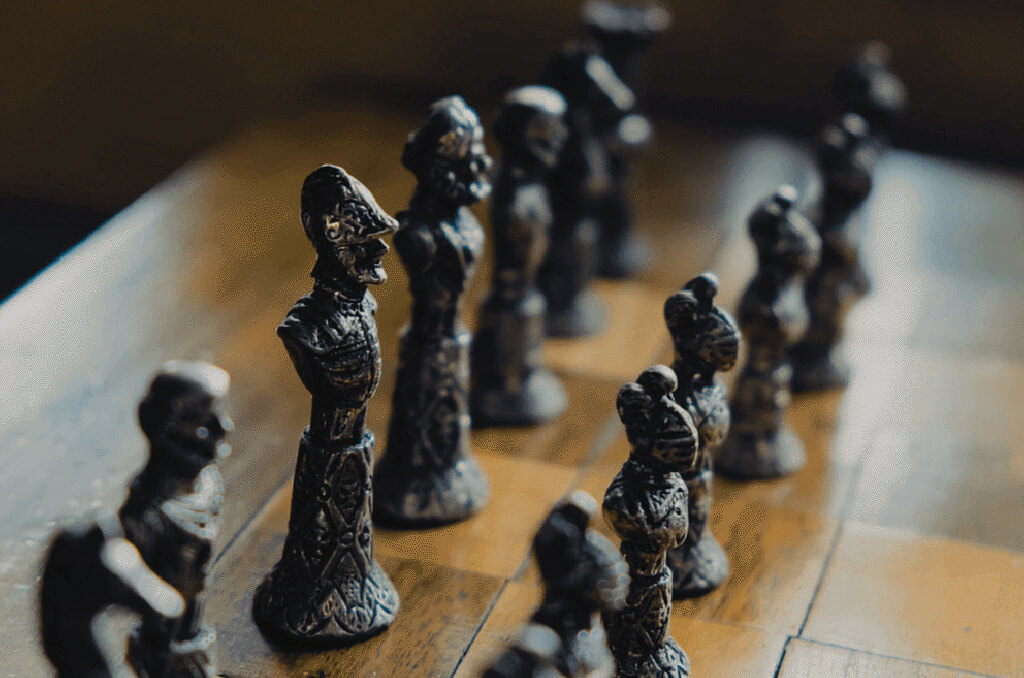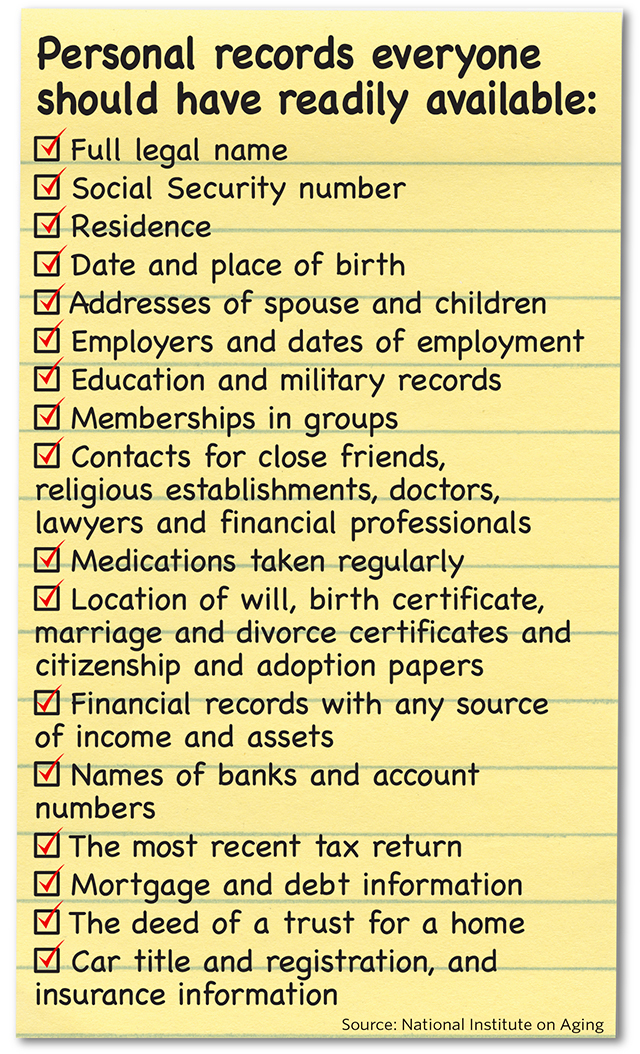This is the most helpful thing you can do for your family before you die

This original article was written by Alessandra Malito for Market Watch.
When Abby Schneiderman’s brother was killed in a car accident, her family was crushed by grief. They were also overwhelmed by trying to get his affairs in order posthumously. “In an instant, everything changed for my family,” she says. “We had no idea what to do, we were in a daze as so many people are.” They couldn’t locate certain documents or and didn’t know where to turn.
The idea of getting every personal record — bank and credit card account information, social media emails and passwords, doctor and lawyer contact information, former addresses and employment — might seem daunting, but it’s one of the most necessary tasks a person can do in her life. An emergency or death is often not the time people can think straight, let alone remember or find crucial information of the ill or deceased. Having a designated place to gather and store pertinent information can help loved ones efficiently manage their duties, reach out to necessary people and save time in the midst of personal turmoil. Of course, that means everyone — young and old — needs to get organized, a task often procrastinated.
Having everything in order can even make you more financially fit, says Greg McBride, senior vice president and chief financial analyst at personal finance site Bankrate.com. “There’s likely a correlation between the two — the people who are going to be buttoned up and organized in regards to an emergency with necessary paperwork are going to be the same people buttoned up for their finances altogether,” he said. “All of those take a lot of foresight and forethought, and confronting thoughts about uncomfortable scenarios.”
There are five stages to organizing personal information: initiation, identification,examination and comparison, selection and modification and lastly, categorization, according to a 2013 Rutgers student’s report called “The Process of Organizing Personal Information.” The hardest part as the saying goes is usually just getting started. “It takes time,” says Nancy Doyle, author of “Manage Your Financial Life: A Thoughtful, Organized Approach for Women.”

Papers and legal documents should be placed together in one spot, the NIA states.
Free resources are available to get people started in organizing their information — blogger Erik Dewey created “The Big Book of Everything,” an information organizer that included funeral arrangement notes and extended family medical history. Other companies like Everplans also exist simply to help people compile all of their necessary information, such as Gyst, which creates wills, advance directives and digital forms.
In the wake of her brother’s death, Schneiderman and her business partner expanded Everplans, the website they ran, which was originally a content site for estate planning, to include a platform for organizing all of life’s documents with loved ones or financial professionals.
Organizing can be overwhelming, it can be boring and sometimes, it can seem unnecessary. Disorganization is often the result of an inability prioritize, a lack of a formal organization system, hoarding, distractibility, poor memory or even depression, San Francisco-based career and personal coach Marty Nemko wrote in a Psychology Today post. Once a person pinpoints why he is disorganized, he can begin a customized approach to fixing it and getting everything neat.
Once everything is prepared and safely stored, individuals need to find one trusted person they can share the information with, such as where to find these documents and passwords to important accounts, Doyle said. If no one in the family fits the job description, people may turn to professionals, such as an attorney or financial adviser, to know where these documents are.
Sometimes, multiple people can act as “deputies,” as Everplans calls them, Schneiderman said, such as a spouse who has full control of everything, but a sibling who takes care of pets and a friend who manages social media accounts. “The deputy should be people that you trust to carry out the different things you want and specify,” she says.